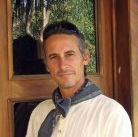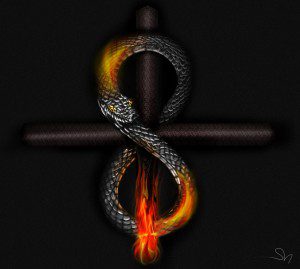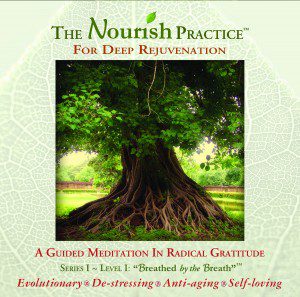4th March 2015
By Jack Adam Weber L.Ac., Dipl. C.H.
Contributing Writer for Wake Up World
From the get-go I want to clarify that by “victim consciousness” I do not refer to those who have been hurt and are earnestly trying to heal. I refer instead to those who have been hurt, as many of us have been, and take on victimhood as an identity, victimizing those around them, defending against goodness to remain in their suffering, and finding every reason not to heal, not to work out their issues, and therefore to deny joy.
“Victims” (as I will henceforth call the coveters of “victim consciousness”) are those who are attached to their suffering and cling to it. In contrast, those who want something more than egregious suffering gravitate towards letting go of pain even, and especially, by embracing difficulty. For the healthy and able person, this journey is a healing crisis on the way to more love and belonging. For the victim, his visit with disaster and misery is home base, what is comfortable. The healthy, courageous person lives through pain for transformation, while the victim stagnates in pain and creates protracted suffering for himself and those around him.
[pro_ad_display_adzone id=”110028″]
A victim’s insistence on stagnating in pain is like venom secreted through their insides. Their business is negativity and allegiance to sad stories, which they repeat as mantras and odes for manageable numbness and a small world they call familiar. Because they avoid the tough work of healing, victims can become lazy, apathetic, anti-social, then complain of loneliness, which of course, they blame on others.
Blame is the modus operandi for victims. This blame extends beyond calling others out on their wrongdoings and expressing reasonable complaint. Their blame, like their pain, is for keeps, not the purging of hurt in order to move on. Victims blame their terminal misfortune on any number of external causes. While these outside entities may indeed have caused them harm, the victim does not forgive them, because to forgive in earnest means to feel one’s pain. Because a victim is more interested in deflecting and projecting pain, she does not activate healing and thereby cannot forgive herself and move on.
Many victims, are also threatened and terrified by the prospect of healing, true love, and goodness because their pain, anger, and resentment give them something to live for. It is a lazy disposition, a resignation to misery, a self-hating fuck-you to life for doing them wrong. They think the only way to victory, to recover what was taken from them, is to destroy themselves and things good (and maybe you), adhering to their story of being done wrong and somehow proving to themselves that the world is evil.
Victims never get to know the transformative power of pain because they have frozen their hearts into ice-trophies to place on the shelf of their glass houses. They don’t know the glorious agony of thawing, of becoming a trickle, then a stream, river, an ocean, and finally a droplet in the body of the divine, and the divine a droplet in their own heart.
Victimhood bears the mark of narcissism. They think their pain is worse than yours, and it may be, but not worse than next person’s, who nonetheless found a way to work it out and get on with their life. This lets them feel special, for victims thrive on negative attention. They think they have it worse that the rest, and this gives them pride, a sense of importance, albeit a negative distinction. The victim will not acknowledge that they co-created the experiences on which they blame their plight, which often originally stems from shame and low self-esteem.
While the plight of victims brings up great sadness in me, to express this sadness often results in ridicule. The most provocative tenderness is not well appreciated by victims. Their rage and constriction deflect even the vulnerable truth and confessions of others.
It’s one thing to be pained, yet quite another to hang onto that pain for dear life, which is to perpetuate a living hell. This is to continue manufacturing and secreting venom. Victims will draw you in and once you trip the right buttons, which they generously help you press, then you become the next character in their story of blame and hatred. You will be punished and desecrated, bitten and poisoned, so beware!
Hate gives victims a cause, a reason to keep going, a sense of self. And this sense of self is often the consolidation of existing shame, as the propensity for self-hatred. Without their coveted pain they would feel worthless and their worth is augmented by dragging others down with them, somehow as proof of their power and the realness of what they possess. They make every excuse not to change, defend against any earnest reckoning. There is little helping them, because they consider goodwill a threat to their raison d’àªtre.
Antivenom
Perhaps many victims have never had access to the tools and resources for healing. Maybe they have been too lazy, despondent, or felt too broken to make the effort. Maybe it’s lack of money, but most can buy, beg, or even steal a self-help book and earnestly pursue their healing, if they truly want to. Maybe they never got the chance to know love as a child and never knew another initiation. This is tragic, but it is more tragic to remain in the past when it is a choice to move forward, if only by embracing and working through the pain of the past to some degree—as the imprisoned, the enslaved, the persecuted, and the abused, and most of us, throughout history have done.
We all have suffered injustice and betrayal. Life itself is traumatic for all of us, to some degree. Those of us who have had the good fortune and worked hard to overcome our dispositions and disasters do all we can to transform hatred and pain. We embrace antivenom. We tell our stories to unlock the prison door, not to throw away the key and live with the serpent turned lethal from our denial. Our stories help us release our pain because we feel our words, make sure they are true, and this feeling allows the strength of pain to lessen a bit more each time. Victims, on the other hand, tell their stories to tighten the shackles of pain.
For those who have suffered insurmountable pain, my heart goes out. We have all experienced pain which we will never get over, yet we make the effort for good rather than worshipping the bad, and if our pain does not reduce at least we also possess the capacity for kindness and self-compassion, which come from deeply being with what victims disown. This goodness bears humility, an openness to goodness and love. While their disposition can also be bitter, the suffering lovers have not made a trophy of their pain, used it as a way to punish others and garner negative attention.
Those of us who find victimhood’s antivenom, who find a way to heal, still live with the traces, the remaining bits of detritus from our heartbreaks and traumas. This modicum of heartbreak, however, is not tragic. It is normal, if not helpful. This bit of ache keeps us connected to one another and serves as a fulcrum for helping others to heal, not remain imprisoned within the negative purpose of victimhood. Ache keeps us humble, and our hearts open, if we allow this to be so.
Indeed, it’s true that love can be the toughest thing to accept, to embody, though logic thinks it easy. This is especially true when we allow ourselves to openly and tenderly feel our depths, to be vulnerable. Love at this level is tough to accept because we have so many defenses around being loved, leftover from our love wounds. So, when we face the prospect of being loved, this triggers our wounds around being cared for, being intimate, and tender. In an effort not to feel those hurts, as well as to try to avoid feeling the pain of the goodness we have lived without for so long, we resist and even angrily try to scare love away. This is why it’s crucial to heal our hearts, to feel our pain when we hurt, so we don’t become calloused in love and defend against care and love when they come our way—so we don’t become victims that can’t heal, that won’t heal.
Victims remain their own only hope. Only they can turn the corner. What makes that light turn on one day is a mystery. Maybe it flickers while their defenses are down and they glimpse the light and follow it precisely because no one showed it to them. Maybe it comes by providence when they mistakenly taste love in their chest and something wakes up that they can’t deny. Maybe it comes from you, or me, who gives them the space to hate as we remain unwavering in our love of life, working honestly through our daily disappointments. This arrangement can work well, as long as you don’t have to be too close and become victimized yourself, for the victim’s lot enjoys company.
So, let us do what we can, approach others’ pain as yet another lesson in deep compassion, while finding the balance to protect and be kind to ourselves. And, may we love ourselves out of any victimhood, for the rest of the world needs our participation and proactive healing.
The Nourish Practice
Jack Adam Weber’s “The Nourish Practice” is an easy, guided meditation-Qi Gong practice in radical gratitude and self-love. It is an Earth-based, body-centered practice — at once physiological and mythological — that is deeply relaxing and replenishing, especially for modern-day burn-out syndrome, and requires little physical effort.
The Nourish Practice “resets your nervous system” and fosters a rich inner life.
You can purchase The Nourish Practice as a CD or Digital Download here.
Previous articles by Jack Adam Weber:
- Relationships: The Costs of Staying When We Should Leave
- Emotional Work
- Choosing a Partner – How to Avoid Relationship Suicide
- Re-Thinking Love: Why Our Hearts Must Also Be Minded
- Spirituality – Reality Check
- 11 Crucial Tips for Better Digestive Health
- Shadow Work: Becoming a Sustainable Light Worker (Part 1)
- Oneness in Action: The GMO Eradication Movement
- After the Hurricane: Lessons from the Heart of Nature
- Relationships: How They Can Make Us Happier
- Heartbreak – Loving Ourselves Through Difficult Times
About the author:
 Jack Adam Weber, L.Ac. is a Chinese medicine physician, author, celebrated poet, organic farmer, and activist for body-centered spirituality. His books, artwork, and provocative poems can be found at his website PoeticHealing.com. He is also the creator of The Nourish Practice, an Earth-based rejuvenation meditation. Weber is available by phone for medical consultations and life-coaching.
Jack Adam Weber, L.Ac. is a Chinese medicine physician, author, celebrated poet, organic farmer, and activist for body-centered spirituality. His books, artwork, and provocative poems can be found at his website PoeticHealing.com. He is also the creator of The Nourish Practice, an Earth-based rejuvenation meditation. Weber is available by phone for medical consultations and life-coaching.
You can connect with Jack Adam Weber on Facebook or by emailing Jack@PoeticHealing.com.
[pro_ad_display_adzone id=”110027″]








